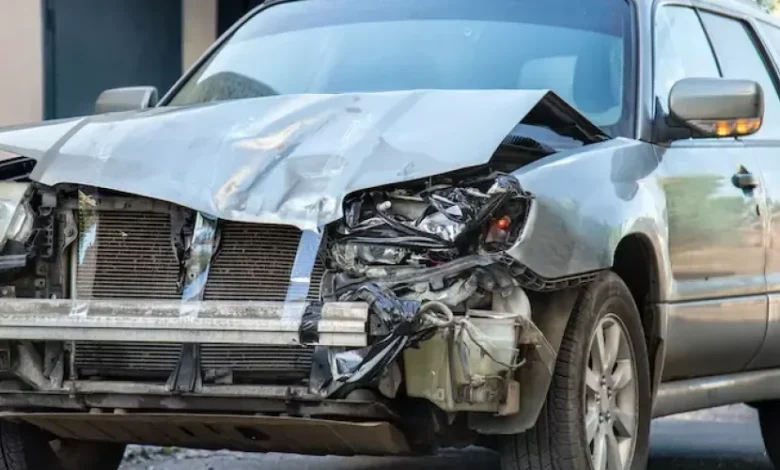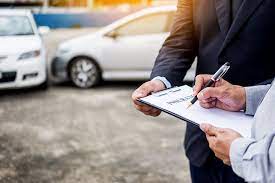How to appeal for Vehicle Property Damage litigations

How to appeal for Vehicle Property Damage litigations
Chapter 1: An Overview of Louisiana Vehicle Property Damage Claims
1.1 What is a Property Damage Claim for an Automobile? The process of pursuing compensation for harm done to your car or other property as a result of an auto accident is known as an automobile property damage claim. To get the money for repairs or replacement, you must file a claim with your insurance provider or the insurance provider of the person who caused the damage.
1.2 Louisiana Property Damage Claims Laws and Regulations Property damage claims are subject to particular laws and restrictions in Louisiana. It’s critical to comprehend the minimum insurance requirements for drivers as well as the state’s statute of limitations for filing claims. Knowing these laws can help you make sure that, if you pursue a property damage claim, you follow the law.
Chapter 2: Step-by-Step Guide to the Claim Process
2.1 Recording the Mishap Scene and Compiling Proof Maintaining records of the collision site is crucial to the success of your property damage lawsuit. Take pictures, get witness accounts, and compile any pertinent data, like insurance and contact information. This supporting documentation will help you make your case and paint a complete picture of the accident’s circumstances.
2.2 Making Insurance Company Contacts Inform your insurance provider of the collision as soon as possible. They will give you the required guidelines and walk you through the claims procedure. In addition, make contact with the insurance provider of the opposing party to record the collision and start the property damage claim.
2.3 Calculating Repair Estimates and Assessing Damage Determine the degree of the damage to the car and get repair quotes from reliable shops. The cost of replacement or repairs will be estimated with the use of these estimations. In order to prevent confusion during the claim process, make careful to document any pre-existing damage.
2.4 Bargaining with the Adjuster for Insurance The insurance adjuster will assess your claim and calculate how much you will be compensated. At this point, having strong communication and negotiating abilities is essential. Provide any supporting documentation, repair quotes, and evidence to back up your claim. Be ready to bargain for a just resolution.
2.5 Handling Conflicts and Getting Legal Help You might need to take extra actions to settle disagreements or disputes that arise during the claim procedure. This can entail contacting a lawyer with experience handling property damage claims for assistance. An attorney can help defend your rights, offer advice, and act as an advocate on your behalf.
Chapter 3: Insurance Company Relations
3.1 Making a Request to Your Insurance Provider As you submit a claim to your insurance provider, adhere to the guidelines provided in your policy. Give precise and thorough details regarding the mishap and the property damage. Have all required paperwork, including repair estimates and accident reports, ready to be submitted.
3.2 Interacting with the Insurance Company of the Opponent It is essential to get in contact with the other party’s insurance provider in order to pursue a property damage claim. Assist them with the claims procedure and give them precise information regarding the accident. For future use, keep copies of all correspondence.
3.3 Being Aware of Coverage Limits and Insurance Policies It’s critical to comprehend your insurance policy’s coverage limitations before filing a property damage claim. To find out what precise coverage you have and whether there are any deductibles, review your insurance. This information will assist you in managing your expectations for compensation and navigating the claims procedure.
Chapter 4: Assessing Damage to Property and Available Repairs
4.1 Evaluating Total Loss and Vehicle Damage Determining whether a car may be repaired or is a total loss requires evaluating the amount of the damage. Repair shops and insurance adjusters can offer expert assessments to ascertain the best course of action based on the damage incurred.
4.2 Deciding Whether to Replace or Repair After the damage has been assessed, you must determine whether to replace or repair your car. Think about things like the cost of repairs, the car’s worth, and possible long-term problems. For expert advice, speak with your insurance provider and other professionals.
4.3 Locating a Reliable Louisiana Repair Shop It is imperative to locate a trustworthy repair business in Louisiana when in need of repairs. Check for recommendations, read through customer reviews and ratings, and confirm that the shop is qualified and skilled in working on the particular make and model of your car. Reputable repair shops offer dependable service and high-quality labor.
Chapter 5: Settlement and Compensation Calculations
5.1 Being Aware of the Elements That Affect Compensation The extent of the damage, the cost of repairs or replacement, and the vehicle’s market worth are some of the variables that affect the amount of compensation awarded for property damage claims. Gaining an understanding of these elements will enable you to evaluate the given settlement’s fairness.
5.2 Accounting for Outlays and Damages Record any pertinent costs and losses stemming from the accident in order to bolster your claim and guarantee proper reimbursement. This could cover any other out-of-pocket costs as well as repair bills, towing charges, and rental car prices. Save all of your receipts and spending documentation.
5.3 Reaching an Equitable Settlement Presenting the insurance adjuster with your records, repair estimates, and supporting documentation is a necessary step in negotiating a proper payment. Be ready to stand up for your rights and bargain for a settlement that fairly compensates you for the harm to your property. If you think the settlement offer is unfair, you might want to consider getting legal assistance.
Chapter 6: Getting Legal Help
6.1 When Is It Time to Think About Hiring Counsel? In rare situations, you might need to employ an attorney to represent your property damage claim. If the claim procedure gets convoluted, you run into disagreements or denials, or you suffer substantial property loss, think about getting legal counsel. An attorney can defend your rights, handle complex legal matters, and offer advice.
6.2 How Can an Attorney Support Your Claim for Property Damage? Throughout the process, an attorney with experience handling property damage claims can be of great assistance. They can help you pursue a right and fair settlement, assist you in navigating legal requirements, and negotiate on your behalf with insurance providers.




